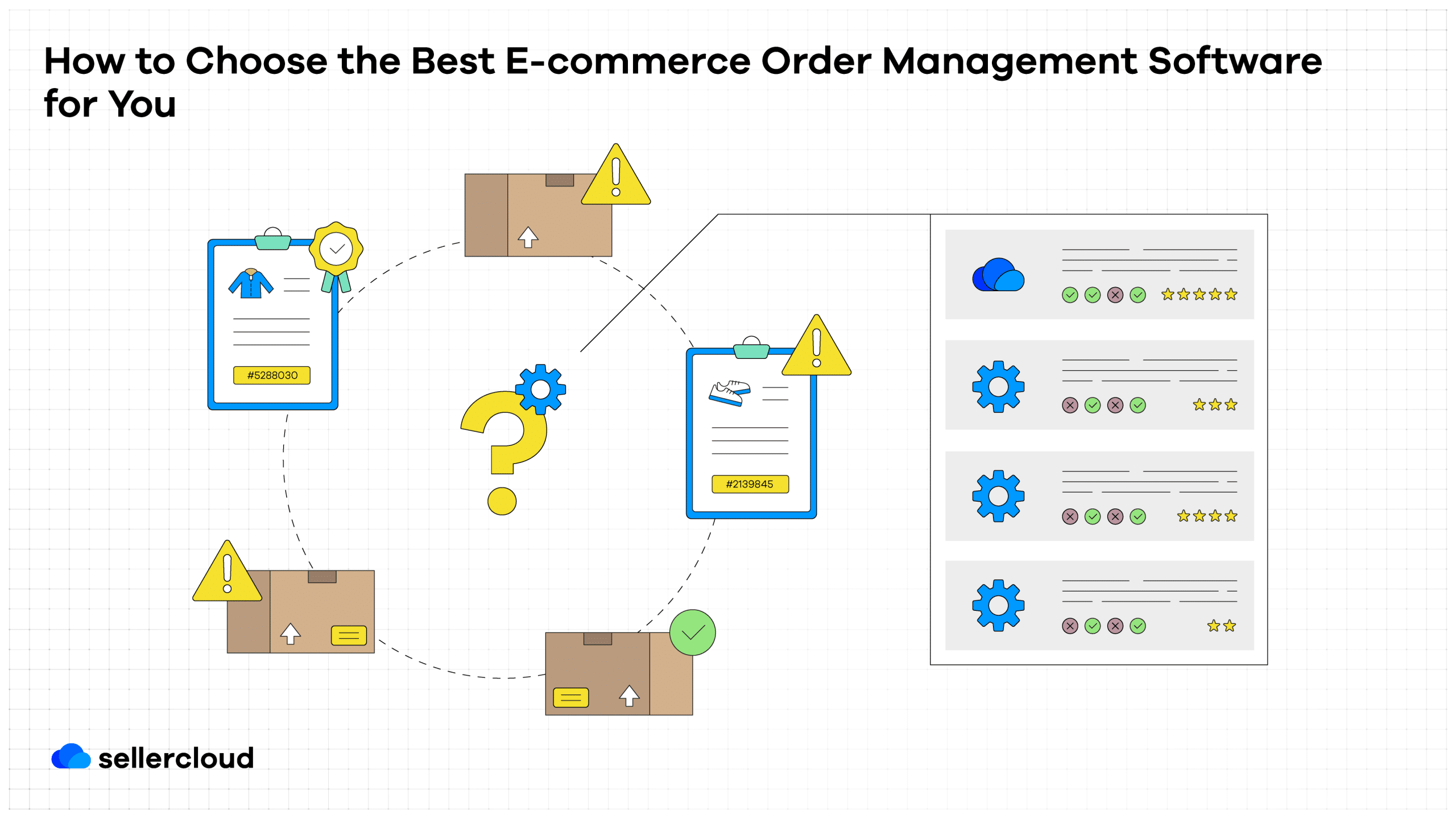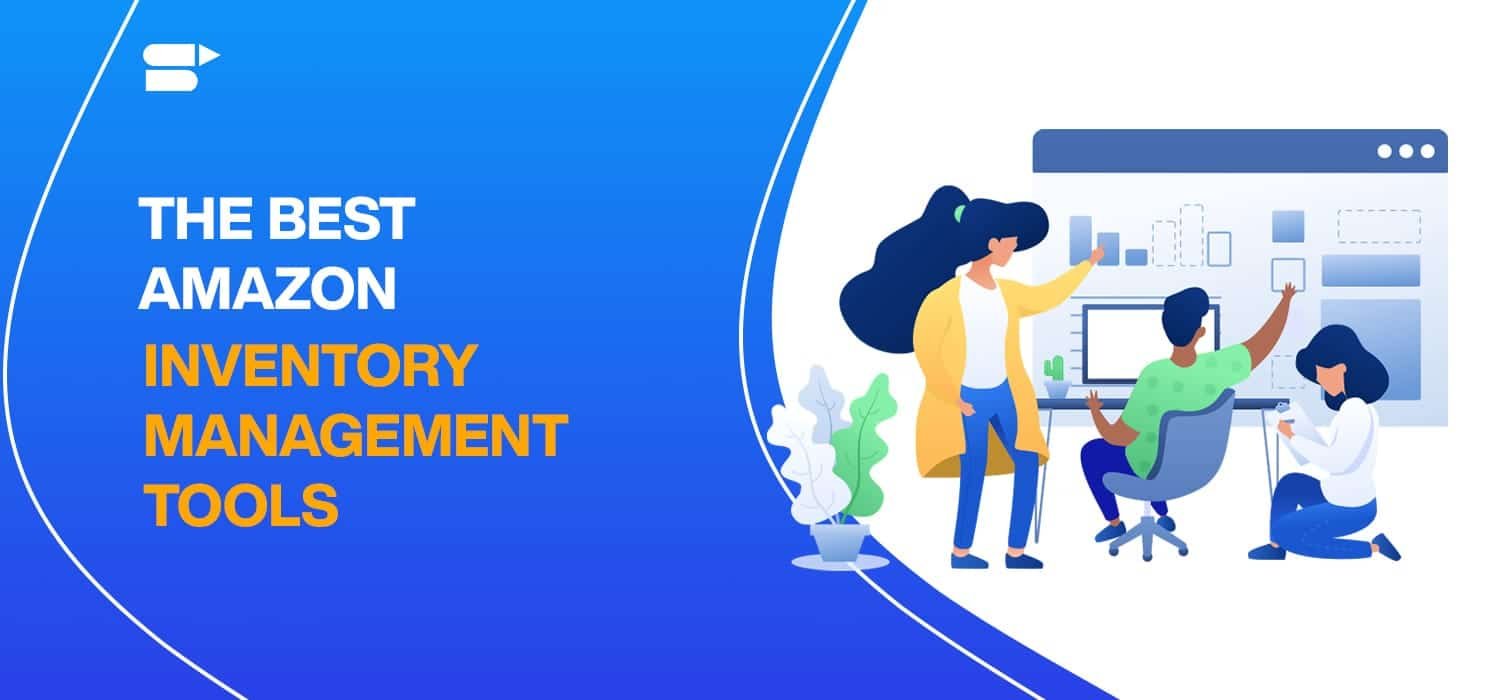Ecommerce management tools can streamline your online business. They make tasks easier and more efficient.
Running an ecommerce business involves many tasks. From inventory management to customer service, the workload can be overwhelming. This is where ecommerce management tools come in. They help you handle various aspects of your business seamlessly. Whether you are a small startup or a large enterprise, the right tools can save you time and money.
In this blog post, we will explore the best ecommerce management tools available today. These tools can help you manage your business more effectively and achieve better results. Stay tuned to find out which tools can make your ecommerce journey smoother and more successful.

Credit: arena.im
Inventory Management Tools
Managing inventory is crucial for any ecommerce business. It can make or break your profitability. Inventory management tools help you keep track of stock levels, avoid overstocking, and ensure timely fulfillment of orders. Let’s dive into some top inventory tools that can make this task easier.
Top Inventory Tools
- TradeGecko: Ideal for small to medium-sized businesses. It offers real-time inventory updates and integrates with multiple sales channels.
- Odoo: Known for its flexibility, this tool provides detailed reports and can be customized to suit your specific needs.
- Zoho Inventory: Great for businesses looking for automation. It includes features like order management, warehouse management, and shipping integrations.
- Fishbowl: Best for larger businesses with complex inventory needs. It provides comprehensive tracking and integrates with QuickBooks.
Features To Look For
When choosing an inventory management tool, it’s essential to consider certain features. Here are some that can make a significant difference:
- Real-time Tracking: Ensure the tool offers real-time updates to avoid discrepancies between actual stock and system records.
- Multi-channel Integration: If you sell on multiple platforms, make sure the tool can integrate with all your sales channels.
- Automation: Look for features that automate repetitive tasks like order processing and stock replenishment.
- Reporting: Detailed reports are crucial for understanding your inventory trends and making informed decisions.
- User-friendly Interface: A simple, intuitive interface can save you time and reduce errors.
Managing inventory can be overwhelming, but the right tools can make it manageable. Have you ever wondered how much time you could save with a tool that fits your needs perfectly? Start exploring these options and take your ecommerce business to the next level!
Order Processing Solutions
Order processing solutions are vital for any successful ecommerce business. They help manage and fulfill customer orders efficiently. With the right tools, you can reduce errors and speed up delivery times. This keeps customers happy and boosts your reputation.
Streamlining Order Fulfillment
Efficient order fulfillment means quicker delivery and fewer mistakes. Automated systems can handle everything from inventory updates to shipping labels. This saves time and reduces manual work. It also ensures orders are processed correctly and on time.
Having a streamlined process improves customer satisfaction. Happy customers are more likely to return and make future purchases. This leads to more sales and growth for your business.
Popular Order Processing Tools
Several tools can help manage order processing. ShipStation is a popular choice. It integrates with many ecommerce platforms. It also offers features like batch processing and customizable shipping labels.
Another option is Ordoro. It provides inventory management and shipping solutions. Ordoro can automate dropshipping and handle returns efficiently.
TradeGecko is also worth considering. It combines order management with inventory tracking. This tool is ideal for businesses with large product ranges.
Choosing the right tool depends on your business needs. Evaluate features and pricing to find the best fit. The right solution will make order processing smoother and more efficient.
Customer Relationship Management
Customer Relationship Management (CRM) is crucial for any ecommerce business aiming to build lasting relationships with their customers. It helps you understand your customers’ needs, improve communication, and ultimately boost sales. Let’s dive into some of the best CRM tools and how they can enhance your customers’ experience.
Crm Tools For Ecommerce
Having the right CRM tools can make a world of difference. They help you manage customer data, track interactions, and automate various tasks. Some popular CRM tools for ecommerce include HubSpot, Salesforce, and Zoho CRM.
HubSpot offers a user-friendly interface and powerful features. You can track sales, manage customer service inquiries, and automate marketing campaigns. It’s a great all-in-one solution for small to medium-sized ecommerce businesses.
Salesforce is another robust CRM tool that can handle complex data and processes. It’s ideal for larger businesses that need more customization and integration options. With Salesforce, you can create detailed customer profiles and track their journey seamlessly.
Zoho CRM is perfect for those who are looking for a cost-effective solution. It offers many features similar to its pricier counterparts but at a fraction of the cost. You can manage leads, automate workflows, and generate insightful reports.
Enhancing Customer Experience
Using CRM tools can significantly enhance your customers’ experience. By keeping track of their preferences and purchase history, you can offer personalized recommendations. This makes your customers feel valued and understood.
Automated responses and follow-ups ensure that no customer query goes unanswered. Quick and efficient customer service is a key factor in retaining customers and building loyalty. CRM tools can help you achieve this effortlessly.
Additionally, detailed analytics provided by CRM tools can help you identify trends and patterns. You can use this data to improve your products and services, making sure you are always meeting your customers’ needs.
Have you ever wondered how a small tweak in your customer service could lead to a significant boost in sales? With the right CRM tool, you can test different strategies and see what works best for your business.
Incorporating CRM tools in your ecommerce business is not just about managing data; it’s about building lasting relationships. Choose the right tool, and you’ll see a noticeable improvement in customer satisfaction and loyalty.
Marketing Automation
Ecommerce businesses thrive on efficient marketing strategies. Marketing automation tools help streamline these strategies, saving time and boosting sales. Let’s dive into some of the best tools that can transform your ecommerce marketing game.
Effective Marketing Tools
Effective marketing tools make a significant difference in your ecommerce success. They offer features that help you reach your audience more efficiently.
Tools like Mailchimp and HubSpot allow you to create targeted email campaigns with ease. These platforms offer templates that are easy to customize.
Another tool, Hootsuite, helps manage your social media posts. It ensures your content is shared consistently across platforms.
Automating Campaigns
Automating campaigns is a game-changer for ecommerce businesses. It ensures that your marketing efforts run smoothly without constant supervision.
With tools like ActiveCampaign, you can set up automated email sequences. These can be triggered by user behavior on your site.
Imagine a customer abandons their cart. An automated email can remind them of their unfinished purchase, increasing your chances of completing the sale.
Have you ever wondered how much time you could save with automation? The hours you spend manually sending emails can be redirected to other important tasks.
Using these tools effectively can help you stay ahead of the competition. Are you ready to take your ecommerce marketing to the next level?
Analytics And Reporting
Analytics and reporting are crucial for any ecommerce business. They help track performance, understand customer behavior, and make data-driven decisions. By leveraging the right tools, businesses can gain insights that drive growth and efficiency. This section will explore how tracking performance metrics and utilizing the best analytics tools can enhance your ecommerce management.
Tracking Performance Metrics
Tracking performance metrics is vital for ecommerce success. Key metrics include sales, conversion rates, and customer retention. By monitoring these metrics, businesses can identify trends and make informed decisions. This helps in optimizing marketing strategies and improving customer experience.
Additionally, tracking metrics allows businesses to detect issues early. This ensures prompt resolution and maintains smooth operations. Regular analysis of metrics ensures continuous improvement and growth.
Best Analytics Tools
Choosing the right analytics tools can significantly impact your ecommerce performance. Some of the best tools offer comprehensive insights and user-friendly interfaces.
Google Analytics is a popular choice. It provides detailed reports on website traffic, user behavior, and conversion rates. Another excellent tool is Shopify Analytics. It offers robust reporting features tailored for ecommerce businesses. For those using WooCommerce, WooCommerce Analytics provides valuable insights into sales and customer data.
These tools help businesses make data-driven decisions. They improve overall ecommerce management and drive growth. Using these tools ensures you stay ahead in the competitive market.
Payment Processing Systems
When running an ecommerce business, choosing the right payment processing system is critical. This is how your customers will complete transactions and how you will receive payments. Let’s dive into some of the key aspects of payment processing systems.
Secure Payment Solutions
Your customers need to feel safe when making purchases on your website. Using secure payment solutions helps build trust and protect sensitive information. Look for systems that offer SSL encryption and PCI compliance to ensure security.
For instance, PayPal and Stripe are well-known for their robust security measures. They use advanced encryption technologies to protect your customers’ financial data. This not only safeguards your business but also enhances customer confidence.
Integration With Ecommerce Platforms
Seamless integration with your ecommerce platform is crucial for a smooth checkout experience. Payment processing systems should work effortlessly with platforms like Shopify, WooCommerce, and Magento.
Imagine having to manually input payment details for each transaction. It would be a nightmare, right? Systems like Square and Authorize.Net integrate easily with major ecommerce platforms, automating the process and saving you time.
How do you choose the best payment processing system for your ecommerce store? Consider the security features and integration capabilities. Your choice can significantly impact your business efficiency and customer satisfaction. What payment processing systems have you found effective for your business?
Shipping And Logistics
Shipping and logistics are crucial for any eCommerce business. Effective management ensures timely deliveries and satisfied customers. Poor logistics can lead to delays and unhappy customers. Let’s explore how to optimize shipping processes and the top tools available for better shipping management.
Optimizing Shipping Processes
Optimizing shipping processes saves time and money. Start by analyzing your shipping methods. Identify the most cost-effective carriers. Use shipping zones to reduce shipping times. Automate your shipping process. Automation reduces errors and speeds up operations. Consider using multiple carriers. Each carrier has different strengths. Choose the best one for each shipment.
Track packages in real-time. Real-time tracking improves customer satisfaction. Provide tracking information to customers. They like to know where their package is. Use data to improve your process. Analyze delivery times and costs. Make adjustments based on your findings. Continuously improve your shipping strategy.
Top Shipping Management Tools
Several tools can help manage shipping and logistics. ShipStation is a popular choice. It integrates with many eCommerce platforms. ShipStation automates shipping tasks. It offers real-time tracking and customizable shipping labels. Shippo is another great tool. It provides discounted shipping rates. Shippo integrates with various carriers. It also offers real-time tracking.
Ordoro is excellent for inventory management. It handles shipping and returns efficiently. Ordoro integrates with multiple sales channels. Easyship offers a global shipping solution. It provides real-time shipping rates. Easyship also offers tax and duty calculations. Choose a tool that fits your business needs.

Credit: www.sevenatoms.com

Credit: sellercloud.com
Frequently Asked Questions
Which Software Is Best For Ecommerce?
Shopify is the best software for eCommerce. It offers user-friendly features, scalability, and excellent customer support.
What Is The #1 Ecommerce Platform?
Shopify is the #1 eCommerce platform. It offers user-friendly features, customizable templates, and robust support for online businesses.
Which Platform Is Best For Ecommerce?
Shopify is the best platform for eCommerce. It offers user-friendly features, scalability, and extensive customization options for businesses.
How Do I Manage My Ecommerce Business?
Manage your eCommerce business by optimizing your website, using effective marketing strategies, managing inventory, and providing excellent customer service. Utilize data analytics to track performance and make informed decisions.
Conclusion
Choosing the right ecommerce management tool boosts your business efficiency. These tools simplify tasks, improve customer experiences, and streamline operations. Evaluate your needs carefully before selecting a tool. Each business has unique requirements, so find the perfect fit. Investing in the right tool saves time and money.
Stay competitive in the fast-paced ecommerce world. Use these tools to enhance your online store’s performance. Happy selling!





